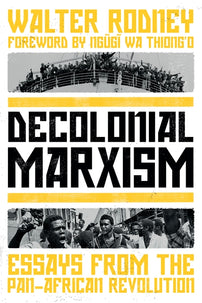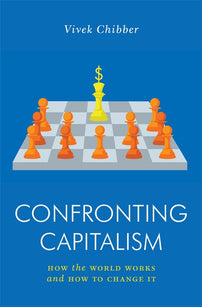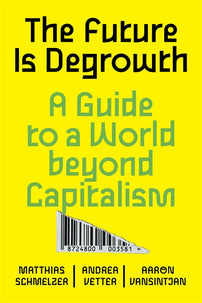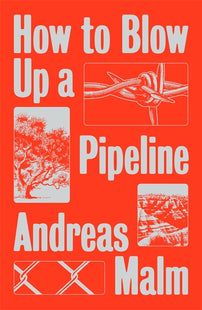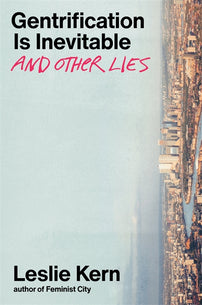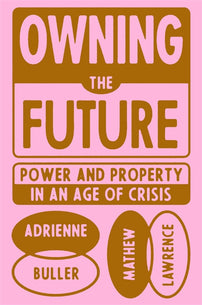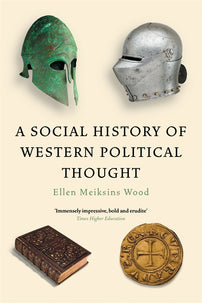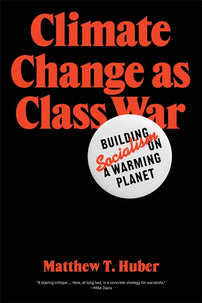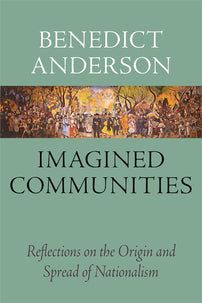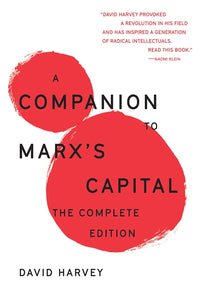Bestsellers of the Student Reading Sale
Our top 20 bestselling books of the Student Reading Sale – get them all for 40% off!

All of the bestselling books in our 2022 Student Reading Sale!
All books are 40% off as part of our Student Reading Sale. Ends September 30 at 11:59PM EST. See all our student reading lists here.
[book-strip index="1" style="buy"]
A trenchant look at contemporary capitalism’s insatiable appetite - and a rallying cry for everyone who wants to stop it from devouring our world.
“Nancy Fraser has produced the most elegant theory yet of capitalism in our age - capitalism not in the narrow economic sense, but capitalism in the sense of a total omnivore, a system that cannot stop devouring everything around it, destroying the lives of people and nature. This is Marxist theory for our age of crisis - and, we shall hope, of reckoning." – Andreas Malm, author of How to Blow Up a Pipeline
[book-strip index="2" style="buy"]A previously unpublished collection of Rodney’s essays on race, colonialism and Marxism.
[book-strip index="3" style="buy"]How Europe Underdeveloped Africa is an ambitious masterwork of political economy, detailing the impact of slavery and colonialism on the history of international capitalism. In this classic book, Rodney makes the unflinching case that African “mal-development” is not a natural feature of geography, but a direct product of imperial extraction from the continent, a practice that continues up into the present.
[book-strip index="4" style="buy"]In this fiery, theoretical tour-de-force, Beatrice Adler-Bolton and Artie Vierkant offer an overview of life and death under capitalism and argue for a new global left politics aimed at severing the ties between capital and one of its primary tools: health.
[book-strip index="5" style="buy"]Gathering together Ruth Wilson Gilmore’s work from over three decades, Abolition Geography presents her singular contribution to the politics of abolition as theorist, researcher, and organizer, offering scholars and activists ways of seeing and doing to help navigate our turbulent present.
[book-strip index="6" style="buy"]Why is our society so unequal? Why, despite their small numbers, do the rich dominate policy and politics even in democratic countries? Why is it so difficult for working people to organize around common interests? How do we begin to build a more equal and democratic society?
[book-strip index="7" style="buy"]Economic growth isn’t working, and it cannot be made to work. Offering a counter-history of how economic growth emerged in the context of colonialism, fossil-fueled industrialization, and capitalist modernity, The Future Is Degrowth argues that the ideology of growth conceals the rising inequalities and ecological destructions associated with capitalism, and points to desirable alternatives to it.
[book-strip index="8" style="buy"]In this lyrical manifesto, noted climate scholar (and saboteur of SUV tires and coal mines) Andreas Malm makes an impassioned call for the climate movement to escalate its tactics in the face of ecological collapse. We need, he argues, to force fossil fuel extraction to stop—with our actions, with our bodies, and by defusing and destroying its tools. We need, in short, to start blowing up some oil pipelines.
[book-strip index="9" style="buy"]NOT AVAILABLE IN CANADA
What does gentrification look like? Can we even agree that it is a process that replaces one community with another? It is a question of class? Or of economic opportunity? Who does it affect the most? Is there any way to combat it? Leslie Kern, author of the best selling Feminist City, travels from Toronto, New York, London, Paris and San Francisco and scrutinises the myth and lies that surround this most urgent urban crisis of our times.
[book-strip index="10" style="buy"]The authors argue that the systemic change we need hinges on a new era of democratic ownership: a reinvention of the firm as a vehicle for collective endeavour and meeting social needs; against the oligarchy of the platform giants, a digital commons that uses our data for collective good, not private profit; in place of environmental devastation, a new agenda of decommodification—of both nature and needs—with a Green New Deal and collective stewardship of the planet’s natural wealth.
[book-strip index="11" style="buy"]In this groundbreaking work, Ellen Meiksins Wood rewrites the history of political theory, from Plato to Rousseau. Treating canonical thinkers as passionately engaged human beings, Wood examines their ideas not simply in the context of political languages but as creative responses to the social relations and conflicts of their time and place.
[book-strip index="12" style="buy"]In this groundbreaking analysis, Matthew T. Huber argues that the carbon-intensive capitalist class must be confronted with its disproportionate effect on the climate. Yet, at present the climate movement is unpopular and rooted in the professional class, where it remains incapable of meeting this dizzying challenge. As an alternative, Huber proposes a climate politics to appeal to the majority—the working class—and he evaluates the Green New Deal as a first attempt to channel working-class material and ecological interests.
Today power is in the hands of Wall Street and Silicon Valley. How do we understand this transformation in power? And what can we do about it?
Lefebvre's classic analysis of daily life under capitalism in one complete volume.
[book-strip index="14" style="buy"]As this thrilling and provocative book makes clear, we must humbly accept that humanity cannot fully understand or control the earth—but we can plan new energy systems, large-scale rewilding, and food production for the common good.
[book-strip index="15" style="buy"]Road to Nowhere argues that rethinking mobility can be the first step in a broader reimagining of how we design and live in our future cities. We must create streets that allow for social interaction and conviviality. We need reasons to get out of our cars and to use public means of transit determined by community needs rather than algorithmic control. Such decisions should be guided by the search for quality of life rather than for profit.
[book-strip index="16" style="buy"]Red Valkyries explores the history of socialist feminism in Eastern Europe. Through the revolutionary careers of five prominent socialist women active in the nineteenth and twentieth centuries—the aristocratic Bolshevik Alexandra Kollontai; the radical pedagogue Nadezhda Krupskaya; the polyamorous firebrand Inessa Armand; the deadly sniper Lyudmila Pavlichenko; and the partisan, scientist, and global women’s activist Elena Lagadinova—Kristen Ghodsee tells the story of the personal challenges faced by earlier generations of radicals.
[book-strip index="17" style="buy"]Based on the hugely popular podcast series of the same name, Bad Gays asks what we can learn about LGBTQ+ history, sexuality and identity through its villains, failures, and baddies.
[book-strip index="18" style="buy"]The full magnitude of Benedict Anderson’s intellectual achievement is still being appreciated and debated. Imagined Communities remains the most influential book on the origins of nationalism, filling the vacuum that previously existed in the traditions of Western thought. Cited more often than any other single English-language work in the human sciences, it is read around the world in more than thirty translations.
[book-strip index="19" style="buy"]The first collection of its kind, Organize, Fight, Win brings together three decades of Black Communist women’s political writings. In doing so, it highlights the link between Communism and Black liberation. Likewise, it makes clear how Black women fundamentally shaped, and were shaped by, Communist praxis in the twentieth century.
For nearly forty years, David Harvey has written and lectured on Capital, becoming one of the world’s foremost Marx scholars. Based on his recent lectures, this current volume—finally bringing together his guides to volumes I, II and much of III—presents this depth of learning to a broader audience, guiding first-time readers through a fascinating and deeply rewarding text. A Companion to Marx’s Capital offers fresh, original, and sometimes critical interpretations of a book that changed the course of history and, as Harvey intimates, may do so again.

